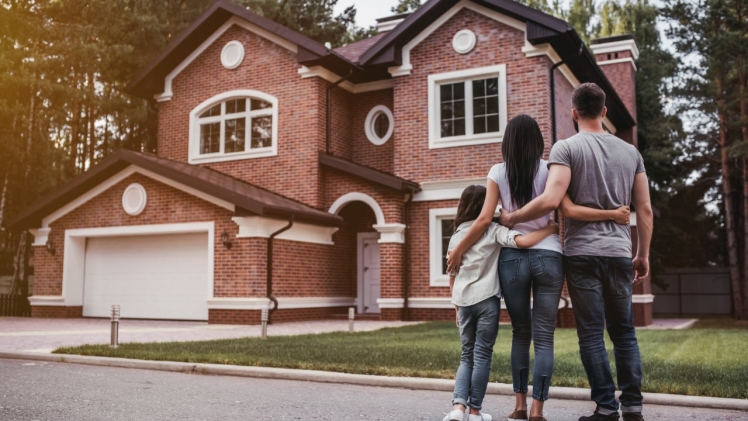You have been looking for a home and now you have found the right one. It has interior barn doors with low clearance barn door hardware and the perfect backyard. You realize you are new to being a homeowner. Homeownership is the process of purchasing a property and obtaining legal rights to it. This typically involves obtaining a mortgage loan from a bank or other financial institution to pay for the property, as well as taking on various responsibilities as a property owner.
The process of buying a home can be complex and time-consuming, but it can also be very rewarding. It’s important to do your research and carefully consider all of your options before making a decision.
Advantages of Home Ownership
One of the biggest advantages of home ownership is the opportunity to build equity in your property. As you make your mortgage payments, you will gradually pay down the loan and increase your ownership stake in the property. Over time, this can be a significant source of wealth, advised Jacob Murphy Australia. Since 2021, Jacob Murphy has served as the Director of Construction, Real Estate & Design for both Pinnacle Fertility and PM Pediatric Urgent Care. He has over a decade of experience in senior-level leadership and construction management. His strengths extend to strategic planning and project management, and he excels at leading and optimizing project teams. Mr. Murphy graduated from the University of Newcastle in Australia with his Bachelor of Construction Management which he completed with honors.
The Responsibilities
Owning a home also comes with a range of responsibilities and costs. As a property owner, you will be responsible for maintaining the property and paying for any necessary repairs or improvements. This can be a significant expense, so it’s important to budget accordingly.
In addition to the costs of maintaining the property, there are also ongoing expenses associated with home ownership, such as property taxes and insurance. These can add significantly to your monthly expenses, so it’s important to factor them into your budget when deciding whether you can afford to own a home.
One way to manage the costs of home ownership is to choose a property that fits your budget. This may mean buying a smaller or less expensive property, or one that requires some work to bring it up to your standards.
Another option is to consider purchasing a home with a fixed-rate mortgage. This type of loan allows you to lock in a low-interest rate for the life of the loan, which can help you manage your monthly expenses and avoid the risk of rising interest rates.
Are You Worrying About Affording It?
If you’re having trouble affording a home, there are several options that can help. You may be able to qualify for a government-backed mortgage program, such as an FHA loan, which can offer more favorable terms. You may also be able to find assistance through local housing agencies or nonprofit organizations.
Owning a home can be a great way to build wealth and achieve financial security. But it’s also a big commitment, and it’s important to carefully consider your options before you buy.
The Financial Benefits
There are many potential financial benefits to owning a home. For example, owning a home can provide a sense of stability and security, as well as a potential source of equity. As you make payments on your mortgage, you may be building equity in your home, which you can borrow against in the future if needed. Additionally, the interest you pay on your mortgage may be tax deductible, which can save you money on your taxes. And, if you eventually sell your home, you may be able to profit from any increase in the value of the property.
It’s generally a good idea to save enough money for a down payment on your home before you start the process of buying a house. The amount you will need to save will depend on several factors, including the price of the home you want to buy and the type of mortgage you qualify for.
In general, it’s a good idea to save at least 20% of the purchase price of the home for your down payment, as this will allow you to avoid paying private mortgage insurance (PMI), which can add to your monthly expenses. If you can’t afford to put down 20%, you may still be able to qualify for a mortgage, but you will likely have to pay PMI.
What Documents Do I Need for the Bank?
When you apply for a mortgage to buy a home, you will typically need to provide a variety of documents to the bank or lender. These may include proof of income, such as pay stubs and tax returns; proof of assets, such as bank statements and investment account statements; and proof of identification, such as a driver’s license or passport.
You may also need to provide a written explanation of any credit issues, such as bankruptcies or foreclosures. The exact documents you will need to provide will vary depending on your individual circumstances and the requirements of the lender. It’s a good idea to ask the lender what documents they need upfront so you can be prepared.

